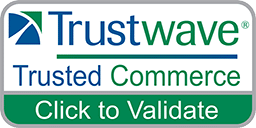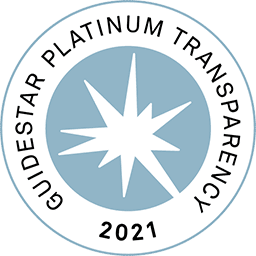NEXT FOR DSP GLOSSARY

Abuse: Harmful or injurious treatment of another person in the form of physical, emotional, sexual, or verbal abuse.
Access: The ability to determine eligibility, obtain or use services, resources, and opportunities.
Active Support: Working with individuals to be actively, meaningfully, and consistently engaged in activities and opportunities regardless of their support and care needs.
Activities of Daily Living (ADLs): Routine activities necessary for daily life, such as personal care, cooking, and shopping
Adaptive Equipment: Specialized tools and devices designed to assist individuals with disabilities perform daily activities as independently as possible.
Alternative Behaviors: Positive actions that can replace challenging behaviors.
Americans with Disabilities Act (ADA): Federal legislation that prohibits discrimination based on disability and requires equal access to services, employment, and public accommodations.
Annual Plan: Document that helps determine specific services and supports individuals with IDD will need to live, work, and be included in the community. The plan should always be directed by the individual receiving support. It can also be referred to by similar names; Life Plan, Quality of Life Plan, Person Centered Plan.
Autonomy: The ability and freedom of an individual or entity to make independent decisions, exercise self-determination, and act in accordance with their values, preferences, and goals without undue external influence or control.
Autistic: Pertaining to individuals with autism, a neurodevelopmental disorder characterized by difficulties in communication, social interaction, and repetitive behavior patterns.
Behavior Skills Training: Behavior Skills Training (BST) is a systematic and structured approach to teaching new skills or behaviors. The steps to BST include Instruction, Modeling, Rehearsal/Practice, and Feedback.
Belonging: The sense of being connected and part of a community or social network.
Chemical Restraint: The use of medication or drugs, typically for sedation or behavior management purposes, to restrict or control the movements, actions, or behaviors of an individual.
Choice: The ability and freedom to make decisions and exercise personal preferences in daily life, including both routine and significant long-term decisions.
Chronic Health Issues: Long-lasting or recurring health problems that can be attributed to genetics, environmental factors, or inconsistent health-related care contributing to their occurrence.
Community-Based Instruction: Educational and experiential opportunities provided in community settings, tailored to the preferences, and needs of individuals with IDD.
Community-Based Living Environments: Living arrangements for adults with IDD within local communities rather than in institutional settings.
Community Inclusion: The concept of integrating individuals with IDD into their communities, enabling them to establish connections and engage in activities of their choice.
Competency-Based Training: A training approach supported by empirical evidence, focusing on the development of specific skills related to desired outcomes. Skill acquisition is assessed through ongoing systematic observation, performance feedback, and collaboration within cross-functional teams.
Congregate Living: a group or communal living arrangement.
Consistency: Ensuring uniformity and reliability in support, especially when provided by DSPs.
Co-occurring Disorders: When a person has two or more disorders or diagnoses at the same time or one after the other.
Core Values: Fundamental principles that guide the actions and decisions of an organization, program or person.
Cultural Competency: The ability of social service organizations and professionals to understand and respond effectively to the cultural needs and preferences of the individuals they serve, promoting improved cognitive, emotional, and developmental outcomes.
Cultural Expression: The various ways individuals or groups showcase and communicate their unique identity through values, beliefs, traditions, art, language and more.
Cultural Humility: A practice that encourages professionals involved in service delivery to acknowledge and address unconscious biases, particularly those related to marginalized groups, to enhance the quality of services provided.
Data: Information or facts that can be collected, stored, and analyzed to help understand, interpret, and make decisions.
Developmental Disabilities Assistance and Bill of Rights Act: Legislation that ensures individuals with IDD have access to appropriate long-term support and services, with a focus on individualization, self-determination, choice, and independence.
Disparities and Inequities: Differences in access to resources, opportunities, and outcomes that result in unfair and unequal treatment of individuals, often related to factors such as race, socio-economic status, or disability.
Empowerment: Providing individuals with the tools, confidence, and support they need to make informed decisions, choices, and achieve their goals.
Evidence-Based: Practices that have undergone research, peer-review, and publication to demonstrate their effectiveness.
Executive Function: Cognitive skills related to memory, abstract thinking, and task organization. These skills may be impacted individuals with autism and other neurodiverse conditions.
Exclusion: The act of intentionally leaving someone out or preventing them from participating.
Expressive Communication: The way a person expresses everyday wants, feelings, needs and makes requests. These can be communicated through spoken or written word, facial expressions, and body language
Functional Assessment: A process used by clinicians to analyze the underlying causes and motivations for targeted behavior, often used in, context of individuals with autism or intellectual disabilities.
Health Equity: Fair and just opportunity to attain the highest level of health, regardless of factors like race, income, disability, or location.
Healthy Living: A lifestyle characterized by choices and behaviors promoting physical, mental, and emotional well-being. It encompasses a range of practices that contribute to overall health, including nutrition, physical activity, stress management, sleep, and social interactions.
Human Dignity: Respecting and honoring the inherent worth of every individual.
Human Rights: Universal freedoms, protections, and entitlements that apply to all human beings including the right to life, education, health, liberty, and freedom from discrimination, irrespective of disability, nationality, or other characteristics.
Inclusion: Inclusion is a philosophy founded on the belief that everyone belongs. Inclusive practice actively welcomes and involves everyone, regardless of differences, ensuring that all individuals feel valued, respected, and a part of a group or community.
Individual Planning Meetings: Scheduled meetings where the individual, DSP, and other team members collaborate to develop and review daily schedules and activities.
Informed Choices: Decisions that are made based on accurate and complete information.
Key Performance Indicators (KPI): Specific measurements used to evaluate and track the effectiveness or success of a particular activity, project, or process, helping to determine if goals are being achieved.
Learning Opportunities: Experiences and activities that promote growth, skill development, and personal enrichment.
Life-long Learning: The ongoing process of acquiring knowledge, skills, and personal development throughout one's entire life.
Marginalized Populations: Groups of people who experience social, economic, or political exclusion, making it more challenging for them to access opportunities and resources within society.
Mechanical Restraints: The use of devices or equipment to restrict an individual's movement.
Meaningful Connection: Positive relationships that are based on mutual respect, trust, interest and make an individual feel valued.
Monitoring: The responsibility of DSPs to regularly assess and oversee the physical conditions of the home, including cleanliness and needed repairs.
Neglect: Failure to provide enough care or attention to someone.
Observation and Feedback: The process of monitoring, assessing and data collection of the implementation of skills, tools, and resources in the support of individuals with Intellectual and Developmental Disabilities. Feedback is then given from the collected data for program improvements.
Olmstead Act: Legislation aimed at providing individuals with disabilities the opportunity to receive services and support in the least restrictive and most integrated settings possible.
Performance Change: Adjusting how individuals or groups carry out tasks and responsibilities to enhance overall effectiveness and results.
Performance Feedback: Information that helps a person understand how well they are doing in a particular task or activity, offering insights on what they are doing right and where they can improve.
Personal Identity: Characteristics, qualities, and traits that define an individual.
Personalization: Making choices and adjustments to reflect your unique style, tastes, and preferences, creating something that feels distinctly yours.
Positive Behavior Support: An evidence-based strategy to encourage positive behaviors and reduce problem behaviors. The intervention uses the least restrictive practices in formal teaching of replacement behavior, positive reinforcement of desired behavior, and alterations to the physical environment to promote better learning outcomes for the individual.
Problem Behavior: Behaviors that may disrupt daily activities or social interactions, and often stem from challenges in communication, sensory processing, or difficulty adapting to change.
Professional Development: Engaging in learning opportunities and activities to enhance skills, knowledge, and effectiveness in a chosen career.
Quality of Life: An established measure of well-being and satisfaction, often used to assess individuals' overall happiness and fulfillment.
Quality Service Outcomes: The desirable and effective results an organization achieves when delivering services to individuals, often characterized by meeting or exceeding expectations and needs.
Receptive Communication: The ability to understand and comprehend spoken language that you hear or read.
Reciprocity: The mutual exchange of affection, trust, experiences, and efforts in a relationship, where both parties contribute to maintaining the connection.
Relationship Building: The process of forming connections and bonds with others.
Resources: Assets, tools, materials, or information that provide support and aid in achieving goals or tasks.
Right to Choose: Balancing an individual's autonomy to make their own choices, including less healthy options, with promoting a healthy lifestyle.
Role Model: Someone you look up to and admire because of their positive qualities, achievements, or behavior, and they serve as an inspiring example for you to follow.
Safety: Ensuring the home environment is free from hazards and dangers, promoting the individual's well-being.
Self-Advocacy: The ability to identify your needs, communicate them clearly and help others understand how to support you.
Self-Determination: Having the freedom and ability to make your own choices, set goals, and take actions to achieve them.
Seclusion: The isolation or confinement of an individual, often in a controlled environment.
Segregated Settings: Environments where individuals with disabilities are separated from the broader community, often leading to limited interactions with those attending their program.
Self-Assessment: A process in which an organization or an individual employee evaluates its own performance, capabilities, and readiness.
Social Determinants of Health (SDoH): The conditions in the places where people live, learn, work, and play that have a significant impact on their health risks and outcomes.
Social Identity: How individuals perceive themselves and what they have in common with others, developed through social engagement and peer support.
Social Relationship: A connection or friendship between people where they interact, communicate, and share experiences, forming bonds that can be supportive and fulfilling.
Supports and Services: Assistance and resources are provided to individuals with IDD to help them lead fulfilling lives and achieve their goals.
Turnover: The rate at which staff members, such as DSPs, leave their positions. This can disrupt the continuity of support and services for individuals with IDD.
Unconscious Bias: The tendency to form opinions about others based on pre-existing beliefs.
Value Components: Guiding principles within the NEXT for DSP model that provide a shared language among DSPs and promote safety and quality outcomes for individuals served.
Value-Based Care: A healthcare model that incentivizes reimbursement for providers based on quality of care given.
Visual Supports: Visual items such as objects, photographs, signs, or pictures used for communication.
Wellness Support: Providing care and support to enhance individuals' overall well-being, meet their health needs, and keep track of their health records.



